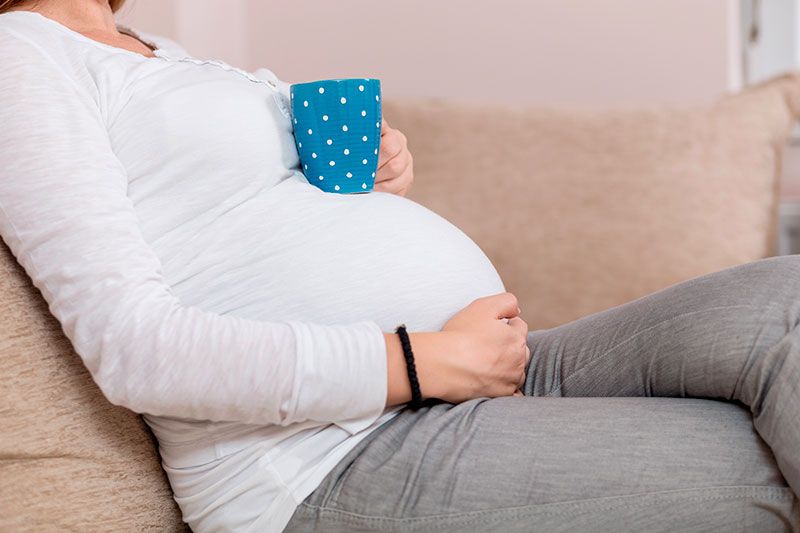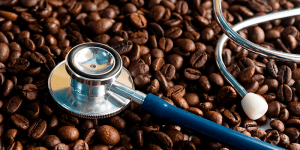Efectos en el embarazo, feto, el neonato, de restringir la ingesta de cafeína en la madre
28-04-2017
Este trabajo tiene como objetivo explorar los efectos de la restricción del consumo de cafeína materna, sobre el feto, neonato y embarazo. Se adelantó una búsqueda en el Cochrane Pregnancy and Childbirth Group´s Trials Register , buscando también en las referencias de los estudios encontrados y consultando expertos. Se incluyeron Ensayos Controlados Aleatorizados (ECAs) y cuasi ECAs que investigan el efecto de la cafeína y/o cafeína suplementaria versus el consumo restringido de cafeína o placebo sobre el embarazo. Dos estudios cumplieron los criterios de inclusión pero solo uno aportó datos congruentes con las ocurrencias pre-especificadas. En este estudio, el consumo de café instantáneo cafeinado (568 mujeres) fue comparado con el consumo de café instantáneo descafeinado (629 mujeres). Se encontró que reducir el consumo de la cafeína consumida por las bebedores habituales (3 o más pocillos al día) en un promedio de 182 mg al día durante el segundo y tercer trimestre, no afectó el peso al nacer o tiempo de gestación. Por lo tanto, se concluye que la evidencia es insuficiente para confirmar o refutar el efecto de la restricción del consumo de cafeína en el peso al nacer u otras variables relacionadas con el embarazo.
Jahanfar S, Jaafar SH. Effects of restricted caffeine intake by mother on fetal, neonatal and pregnancy outcome. Cochrane Database of Systematica Reviews 2013; 2 : Art. No: CD006965
References to studies included in this review Bech 2007 {published data only}Bech BH, Obel C, Henriksen TB, Olsen J. Effect of reducing caffeine intake on birth weight and length of gestation: randomised controlled trial. BMJ 2007;334:409. Robinson 2009 {published data only}Robinson LE, Spafford C, Grahan TE, Smith GN. Acute caffeine ingestion and glucose tolerance in women with or without gestational diabetes mellitus. Journal of Obstetrics and Gynecology Canada 2009;31(4):304–12.
Additional references Adeney 2007 Adeney KL, Williams MA, Schiff MA, Qiu C, Sorensen TK. Coffee consumption and the risk of gestational diabetes mellitus. Acta Obstetricia et Gynecologica Scandinavica 2007; 86(2):161–6.Aldridge 1979 Aldridge A, Aranda JV, Neims AH. Caffeine metabolism in the newborn. Clinical Pharmacology and Therapeutics 1979; 25:447–53. Back 2006 Back SA, Craig A, Luo NL, Ren J, Akundi RS, Ribeiro I, et al.Protective effects of caffeine on chronic hypoxia-induced
perinatal white matter injury. Annals of Neurology 2006;60(6):696–705. Bech 2005Bech BH, Nohr EA, Vaeth M, Henriksen TB, Olsen J.Coffee and fetal death: a cohort study with prospective data.American Journal of Epidemiology 2005;162(10):983–90.Berger 1988 Berger A. Effects of caffeine consumption on pregnancy outcomes. Journal of Reproductive Medicine 1988;33:
945–56.
Bodineau 2006
Bodineau L, Saadani-Makki F, Jullien H, Frugiere A.
Caffeine in the milk prevents respiratory disorders caused
by in utero caffeine exposure in rats. Respiratory Physiology
and Neurobiology 2006;150(1):94–8.
Bracken 2003
Bracken MB, Triche EW, Belanger K, Hellenbrand K,
Leaderer BP. Association of maternal caffeine consumption
with decrements in fetal growth. American Journal of
Epidemiology 2003;157(5):456–66.
Browne 2006
Browne ML. Maternal exposure to caffeine and risk of
congenital anomalies: a systematic review. Epidemiology
2006;17(3):324–31.
Browne 2007
Browne ML, Bell EM, Druschel CM, Gensburg LJ,
Mitchell AA, Lin AE, et al.Maternal caffeine consumption
and risk of cardiovascular malformations. Birth Defects
Research. Part A, Clinical and Molecular Teratology 2007;
Vol. 79, issue 7:533–43.
Bruyere 1987
Bruyere HJ, Michaud BJ, Gilbert EF, Folts JD. The effects
of cardioteratogenic doses of caffeine on cardiac function in
the 3-day chick embryo. Journal of Applied Toxicology 1987;
7(3):197–203.
Clausson 2002
Clausson B, Granath F, Ekbom A, Lundgren S, Nordmark
A, Signorello LB, et al.Effect of caffeine exposure duringpregnancy on birth weight and gestational age. American
Journal of Epidemiology 2002;155:429–36.
Elmazar 1982
Elmazar MM, McElhatton PR, Sullivan FM. Studies on the
teratogenic effects of different oral preparations of caffeine
in mice. Toxicology 1982;23(1):57–71.
Ford 1988
Ford RPK, Schluter PJ, Mitchell EA, Sragg R, Stewart AW,
New Zealand Cot Death Study Group. Heavy caffeine
intake in pregnancy and sudden infant death syndrome.
Archives of Disease in Childhood 1988;78:9–13.
Gaytan 2006
Gaytan SP, Saadani-Makki F, Bodineau L, Frugiere A,
Larnicol N, Pasaro R. Effect of postnatal exposure to caffeine
on the pattern of adenosine A1 receptor distribution in
respiration-related nuclei of the rat brainstem. Autonomic
Neuroscience 2006;126:339–46.
Grosso 2006
Grosso LM, Triche EW, Belanger K, Benowitz NL, Holford
TR, Bracken MB. Caffeine metabolites in umbilical cord
blood, cytochrome P-450 1A2 activity, and intrauterine
growth restriction. American Journal of Epidemiology 2006;
163(11):1035–41.
Higgins 2008
Higgins JPT, Green S, editors. Cochrane Handbook for
Systematic Reviews of Interventions Version 5.0.0 [updated
February 2008]. The Cochrane Collaboration, 2008.
Available from www.cochrane-handbook.org.
Higgins 2011
Higgins JPT, Green S (editors). Cochrane Handbook
for Systematic Reviews of Interventions Version 5.1.0
[updated March 2011]. The Cochrane Collaboration,
2011. Available from www.cochrane-handbook.org.
Iglesias 2006
Ig















